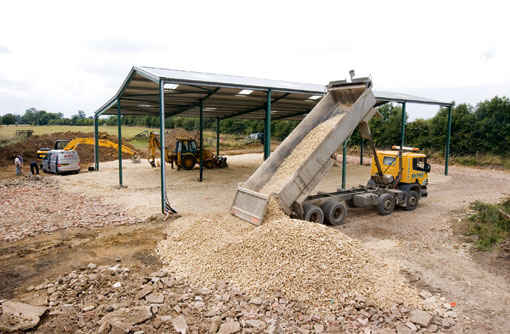How to lodge a planning appeal

A high-quality planning and appeals service is the goal of the new Planning Inspectorate (Pins), said its director of casework and plans Mark Southgate when he outlined how to submit successful planning appeals.
“It is surprising how many appeals come in late, missing some documents or with forms filled in incorrectly. Make sure you have everything ready and in on time,” he said.
Mark Southgate’s top tips
- Submit all documents on time
- Ensure appellant and applicant names are the same
- Complete the Agricultural Holding Certificate correctly
- Use the right appeal form
- Make just one appeal per form
- Complete the Site Ownership Certificate correctly
- Indicate the scale to be used for printing
- Make sure documents are 5MB or under
- Provide documented evidence that negotiations have taken place.
Appearing at a hearing also involves timing and documentation issues, he said. “Help the inspector to prepare properly by following some simple guidelines,” said Mr Southgate.
- Use the correct form
- Submit all the required documentation
- Stick to timetables
- Be brief/succinct
- Co-operate with other parties
- Give a clear indication of the time needed to present evidence
- Don’t leave matters to the site inspection – unless it’s a visual matter.
Making the planning process easier will make some farm tenants more vulnerable, warned George Dunn, chief executive of the Tenant Farmers Association.
“There could be unintended consequences of the new system. So while we don’t want the planning system to get in the way of growth, we are concerned about the consultation on change of use,” he said.
The government consultation, which has just closed, proposes a relaxation of planning rules for change of use from commercial to residential.
On many farms, dwellings were a key issue, he said. “For new entrants to farming who are coming in without capital, tenancies are often without a dwelling. We need some flexibility there.”
Likewise, dwellings for successors were also required. “We need places for the next generation, as well as places for the retiring generation to go. That’s why the TFA wants to strengthen and widen agricultural restrictions on dwellings. They are a potential resource for business change,” said Mr Dunn.
Another key concern was notices to quit. If a landlord could get consent for change of use from agriculture to another activity, he could evict the tenant, added Mr Dunn.
The reuse of existing buildings also needed to be given more thought, he said. “Case law protections are still in place, so when a landlord applies for change of use the impact on the personal circumstances of the tenant has to be taken into consideration.” County council smallholdings had a unique role in allowing individuals to become farmers and should be given more emphasis, he added.
“We need these opportunities as a first rung on the farming ladder. If councils can be allowed to harvest their value, through some strategic development, they will still be able to provide this initial step.
Planning will have a role in the sustainable management of these farms.”
